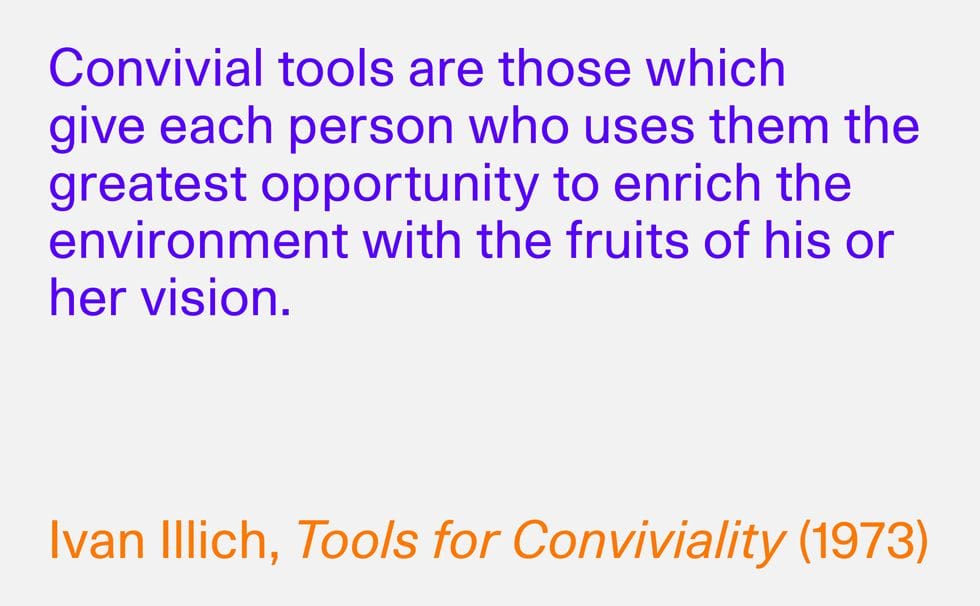Conviviality is Ivan Illich’s term for a mode of life where tools, systems, and technologies are oriented toward autonomy, reciprocity, and human flourishing rather than extraction or control. In his 1973 book Tools for Conviviality, Illich distinguishes between tools that empower individuals and communities to act with freedom, and tools that become industrial megastructures serving bureaucratic or capitalist imperatives.
Convivial tools are those that remain accessible, adaptable, and understandable. A bicycle, a garden, a simple printing press, or an open-source computer program are convivial when they allow people to create, move, and communicate without requiring gatekeepers or industrial dependency. By contrast, cars, highways, and sprawling medical bureaucracies exemplify non-convivial systems: they appear to offer freedom but in fact create new monopolies, alienations, and forms of domination.
The concept of conviviality asks what technologies we truly need, who controls them, and how they shape our relationships. It challenges us to design tools that amplify mutual care and creative independence, rather than enforcing consumption and passivity. Illich’s vision remains prescient in an age of platform monopolies and ecological breakdown: conviviality reminds us that technology is never neutral, and that living otherwise requires reclaiming our tools so that they serve life.

Image from Vera Sachetii.


